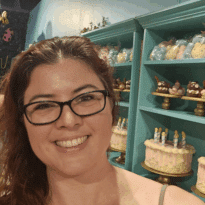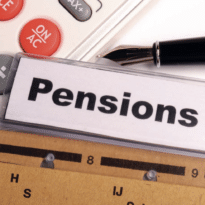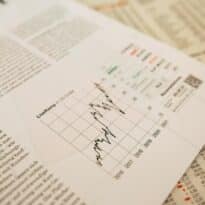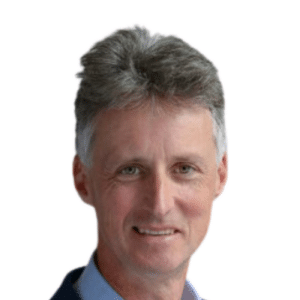In this Investment Q&A from Fund Calibre, Dr. Paul Jourdan, CEO of Amati Global Investors, explores the unique ESGH approach employed by Amati, shedding light on the importance of adding the “H” for Human Rights to ESG, emphasising its significance as a separate category of investment risk.
Jourdan focuses on the profound impact of human rights, particularly in commodities like mining, oil and gas, highlighting the oversight in neglecting human rights considerations in these critical sectors, pointing out real-world implications, such as the funding of geopolitical conflicts through resource purchases.
Why you should listen to the interview: Paul addresses a very complex subject in a thoughtful and measured way, making an exceptionally strong case that investors really should consider human rights when risk profiling a company. Listeners gain valuable insights into Amati’s process of risk analysis, involving a careful study of non-financial risks, supply chains, employment practices, and more. This Amati in-house ESGH process could certainly help to change the world of investing. Listen and see how it might change yours.
Please note, answers are edited and condensed for clarity. To gain a fuller understanding and clearer context, tune in to the ‘Investing on the go’ podcast.
What’s interesting in this interview:
The base case
“I think over the last 25 years since I’ve been managing UK smaller company funds, I had to learn the hard way in many ways about human rights. The reason why it’s worth adding Human Rights on to ESG is it presents a separate category of investment risk, and it’s one that I think is profoundly important to pay attention to. And I think the fact that we’ve paid so little attention to it as an investment community over the last 25 years has been to our great cost. There are some major blind spots in the way that we run our lives and our economy which completely ignore some important human rights abuses that go on in our supply chains. And the fact that we ignore them actually, is devastating for us in the end. It has terrible consequences, which do come back and bite us.”
The natural resources curse
“A lot of the ideas I’ve got about this topic I picked up only in 2016 when I came across a man called Leif Wenar who was a professor at King’s College London when I met him, and he’d just published a book called ‘Blood Oil: Tyrants, Violence and the Rules that Run the World’. And it is really a book about the oil curse – which I call the natural resources curse – and he uses this term called blowback, which is an old CIA term for when if you really screw up in a country, it comes back and bites you because things go sufficiently badly and then have major implications that bites you at a time you don’t expect it, when you’ve turned a blind eye to it.
“If I’d said this back in 2016, most people would have said, sure, but look, the world’s a peaceful place, how can you be right about this? The fact that we don’t need to pay any attention to where we buy our oil and gas from, can’t matter that much, can it? And now of course, it’s just blindingly obvious that one of the most upsetting features of the last two years has been Russia’s invasion of Ukraine, pretty much entirely funded by purchases of oil and gas by western economies. And obviously China buys some too, but it’s really western economies that have funded that war primarily and still do. And although we’ve imposed sanctions, they’re very ineffective now that India’s buying a lot of the oil; we buy it without really knowing it, and we’ve never tried to control the trade in oil and gas from a human rights point of view which, I think, has been to our huge cost.
“But coming back to standing as an investor actually considering, and as an investor, I’d say human rights impacts a number of areas but by far the biggest is in the international trade in commodities and oil and gas is the most valuable commodity in the world still. So, that’s the most important trade, and it’s the trade that funds the most oppression and is the most destructive and violent in its consequences. And we need to pay attention to it, something which I think is hugely overdue.”
Risk analysis of human rights considerations
“First of all, in terms of systems, we don’t have a magic system that comes up with the answers. What we have is a framework, an ethical framework, that we operate in, and an understanding of what is the role of ESGH risk analysis in investment.
“For us, the study of ESGH is really about risk analysis. It’s not primarily about making a moral judgment about things and saying, oh, we only want this, so let’s do our study to see whether it’s of that type and if it’s of that type. It’s not a kind of ‘yes or no’ decision box — with the exception of human rights, which for me, is a bit of a ‘yes or no’ decision box.
“And I think actually it is really incumbent on fund managers to explain to their investors very, very carefully where their real ‘yes and no’ decision boxes are. Because if you’re going to exclude something on principle, then you are potentially limiting your fund investors’ returns by doing that. Your investors need to be very clear about where you’re going to do that and where you’re not going to do that. And for us that exclusionary principle is really a function of the human rights element of this.
“We have a template that prompts us to think: what are the things you really want us think about in relation to a company in order to understand each of these risks? So, the way we categorise ESGH is as being about the study of non-financial risk in a company. And that’s how we talk about it and think about it. And we produce our own piece of research on it, and it’s clearly an integral part of the investment process.
“It’s also very important for us that this is something that the fund managers are involved in leading on, getting into the decision-making process and pairing it up with an understanding of exactly what the company does, who its management are, what are they trying to achieve, and weighing up all of these risk factors in that context. So, we’re really not believers in turning this into some kind of systematic ‘yes or no’, or this company qualifies / this one doesn’t qualify for XYZ criteria. I think that – in most cases – is missing the point. It is about the study of non-financial risk as part of your investment decision making.”
ESGH in practice
“I suppose when the war in Ukraine started, we had no investments that had anything to do with Russia because we’d have pretty systematically avoided that kind of exposure over the past few years before then.
“On the positive side – and this is very relevant to the WS Amati Strategic Metals fund – they have a big investment in a Brazilian lithium company which is an absolute poster child for really excellent environmental management. The company has done very well on the back of it and it’s one of the first of the new lithium mines to get into production. It’s called Sigma Lithium, and it’s quite a significant company now. And indeed, the environmental policies and practices they adopted in building that mine were exemplary. So, that’s on the positive side.
“On the negative side, the mining team had an investment in a company that had assets in Africa, and they then acquired an asset, I think it was in South Sudan. South Sudan wouldn’t have met our criteria from a human rights point of view so they sold out of that company.
“I can’t tell you whether that was a good or bad thing from an economic point of view, but my experience is if you go wandering into natural resource assets in countries where the level of freedom is extremely poor, it’s very rare that you come out of it well, so I’m pretty happy that we didn’t do that.
Conclusion
This interview is a fascinating insight into portfolio risk from the perspective of human rights. During the 30-minute interview, Paul makes it very clear that it’s not only a complicated moral topic but also one that presents itself as “a separate category of investment risk” which is why investors really ought to be paying attention to it — and why it shouldn’t be grouped into broader ESG considerations. Overall, this interview offers everyone a deeper understanding of responsible and ethical investment practices in the ever-evolving landscape of financial markets. It’s an interview not to be missed.
For those who want more:
This interview only scratches the surface of the two part statement written by Dr. Paul Jourdan on Amati’s ESGH practice, available here:
Part 1: Investing responsibly in a complex and divided world
Part 2: ESGH in Practice































